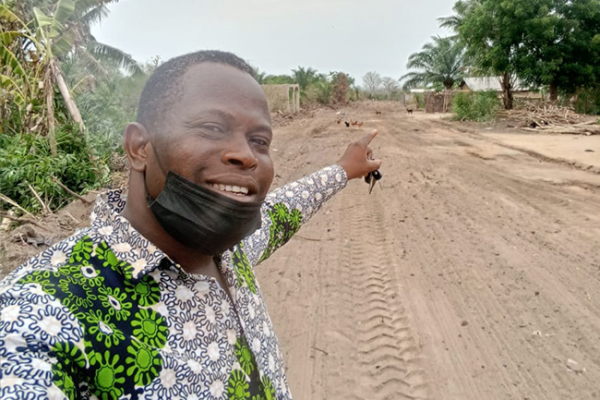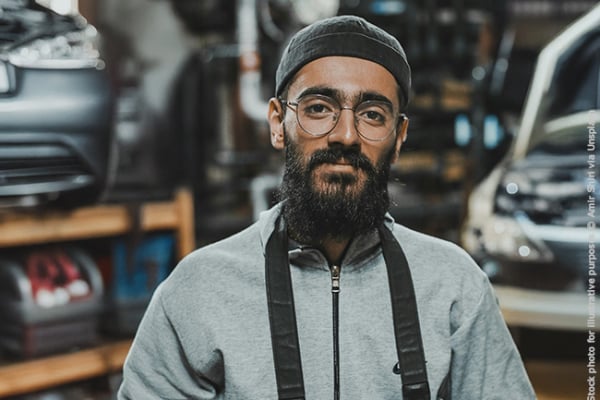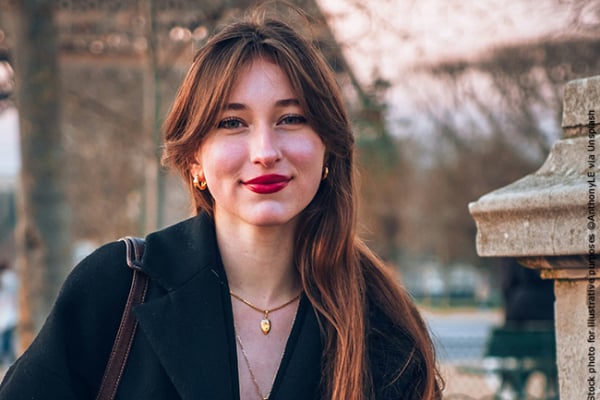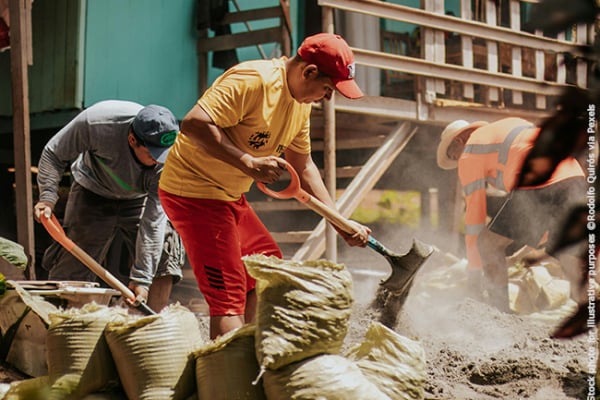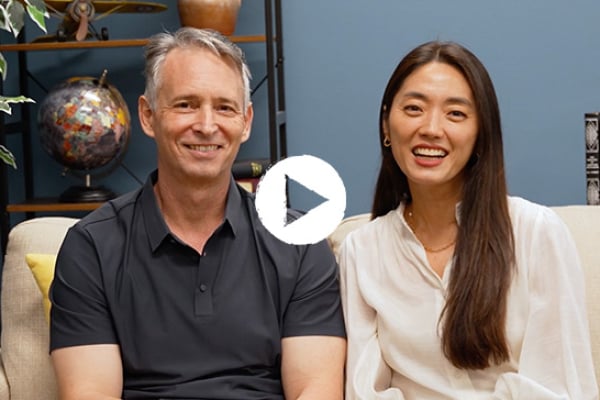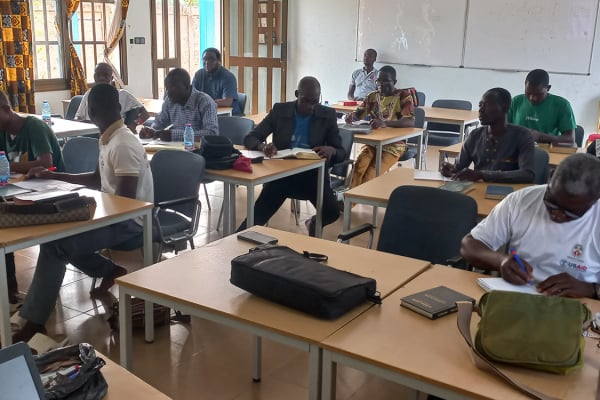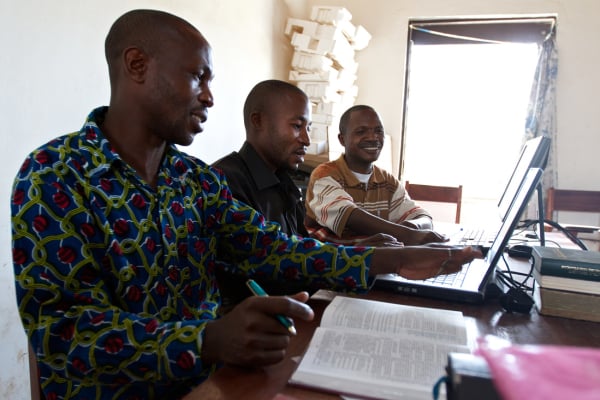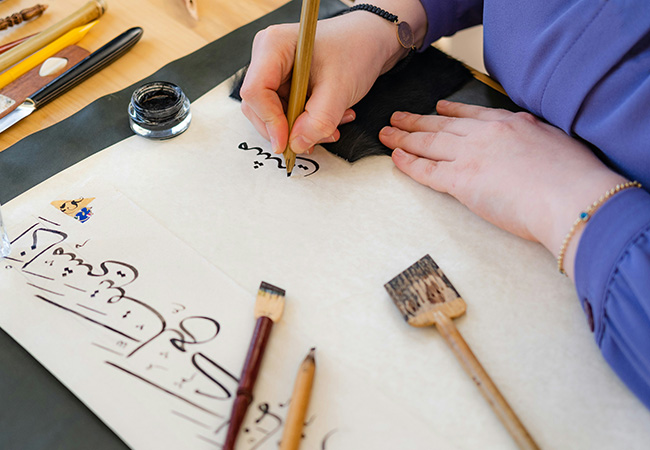
July 2, 2025
Calligraphy Prayers
WEST ASIA — I guess calligraphy class is canceled today, thought Crossworld worker Tabitha when she couldn’t see any lights on from outside and the classroom appeared to be empty.
She turned around to go home, but as she walked back to her car, she sensed that she should go check again. This time she walked into the building and found her teacher, Nasir. Though no other students were present, Nasir offered to teach the class for Tabitha anyway.
Tabitha, a doctor by profession, had signed up for this calligraphy class to learn about her new culture and meet people in the community.
“What did you bring to work on today?” Nasir asked. Each week he asked the students to come with a phrase they want to learn to write.
“I want to learn how to write this blessing from the Bible,” Tabitha said as she pulled out a paper with Numbers 6:24-26. The LORD bless you and keep you, the verses began. “I’ve tried to write it out myself, but I think I made some mistakes.”
Nasir looked at Tabitha’s paper and showed her how to fix the sentence. As she dipped her calligraphy pen in ink to start writing, she asked Nasir, “What does prayer look like in your culture?”
“We’re required to pray five times a day,” Nasir said. Then he asked Tabitha, “Do you pray?”
“Yes,” Tabitha said, “but I have the privilege to speak to God anytime. It doesn’t have to be in a specific place or way.”
“Really? There are no requirements?” Nasir asked.
Tabitha shook her head as she continued writing.
“It’s difficult to live according to the rules of my religion,” Nasir said. “There are a lot of requirements and things we have to do to be good.”
“I know that I can’t be good enough to earn my way to God,” said Tabitha. “But I don’t have to because he has provided the way for me to come to him. I obey God out of love, not to earn my way, because he’s already done it all anyway.”
Nasir moved to show Tabitha a new writing technique and the conversation ended. Though Tabitha would have liked to say more, she left that day thanking God that he had led her back into the classroom to plant a seed of the gospel.
She turned around to go home, but as she walked back to her car, she sensed that she should go check again. This time she walked into the building and found her teacher, Nasir. Though no other students were present, Nasir offered to teach the class for Tabitha anyway.
Tabitha, a doctor by profession, had signed up for this calligraphy class to learn about her new culture and meet people in the community.
“What did you bring to work on today?” Nasir asked. Each week he asked the students to come with a phrase they want to learn to write.
“I want to learn how to write this blessing from the Bible,” Tabitha said as she pulled out a paper with Numbers 6:24-26. The LORD bless you and keep you, the verses began. “I’ve tried to write it out myself, but I think I made some mistakes.”
Nasir looked at Tabitha’s paper and showed her how to fix the sentence. As she dipped her calligraphy pen in ink to start writing, she asked Nasir, “What does prayer look like in your culture?”
“We’re required to pray five times a day,” Nasir said. Then he asked Tabitha, “Do you pray?”
“Yes,” Tabitha said, “but I have the privilege to speak to God anytime. It doesn’t have to be in a specific place or way.”
“Really? There are no requirements?” Nasir asked.
Tabitha shook her head as she continued writing.
“It’s difficult to live according to the rules of my religion,” Nasir said. “There are a lot of requirements and things we have to do to be good.”
“I know that I can’t be good enough to earn my way to God,” said Tabitha. “But I don’t have to because he has provided the way for me to come to him. I obey God out of love, not to earn my way, because he’s already done it all anyway.”
Nasir moved to show Tabitha a new writing technique and the conversation ended. Though Tabitha would have liked to say more, she left that day thanking God that he had led her back into the classroom to plant a seed of the gospel.
The people in this story are real, but some names have been changed to protect their privacy.
More Articles
TOGO — A man prayed for 38 years for the church to come to his village.
August 6, 2025
CANADA — A routine maintenance visit leads to a search for eternal truth.
September 3, 2025
CENTRAL ASIA — A chemistry class assignment sparks questions of faith for Maya in Asia.
October 1, 2025
FRANCE — Lucie’s isolated faith turns to bold witness in her new community.
November 5, 2025
MEXICO — Andrew’s encounter at the doorstep served an entirely different purpose.
February 4, 2026
BRAZIL — A paraplegic woman comes to faith through a gospel necklace and helps others do the same.
January 7, 2026
WEST ASIA — A Christmas gift melted Liliya’s desire for revenge.
December 3, 2025
.png)

 By Crossworld
By Crossworld